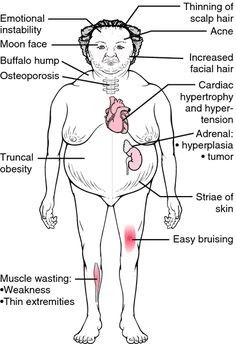After a change-of-shift report, which client should the nurse assess first?
A 50-yr-old patient who uses exenatide (Byetta) and is complaining of acute abdominal pain
A 23-yr-old patient with type 1 diabetes who has a blood glucose of 40 mg/dL
A 40-yr-old patient who is pregnant and whose oral glucose tolerance test is 202 mg/dL
A 19-yr-old patient with type 1 diabetes who has a hemoglobin A1C of 12%
The Correct Answer is B
A blood glucose level of 40 mg/dL indicates severe hypoglycemia, which is a medical emergency requiring immediate attention. Hypoglycemia can lead to confusion, altered mental status, seizures, and loss of consciousness if not treated promptly. Therefore, it is crucial to assess and intervene quickly to raise the patient's blood glucose level to a safe range.
While the other clients mentioned also require attention and appropriate care, the severity and immediate risk associated with severe hypoglycemia make it the priority situation. The nurse should initiate appropriate treatment for hypoglycemia, such as administering glucose or glucagon, and closely monitor the patient's response.
Nursing Test Bank
Naxlex Comprehensive Predictor Exams
Related Questions
Correct Answer is A
Explanation
In a client with minimal change nephrotic syndrome (MCNS), the primary concern is the management of fluid volume and hydration status. MCNS is characterized by increased glomerular permeability, leading to excessive protein loss in the urine and subsequent hypoalbuminemia. This can result in fluid retention and edema formation, including facial edema.
Hypertension is a common complication in clients with MCNS, and it further contributes to fluid retention and potential complications. Therefore, closely monitoring the client's fluid volume and hydration status, including daily weights, intake and output measurements, and assessment of edema, is crucial to detect any changes and guide appropriate interventions.
While other actions, such as consulting with a registered dietitian about adequate intake or using sterile technique to prevent infections, may be important aspects of the client's care, they are not the priority in this situation. The immediate concern is managing the client's hypertension and fluid volume status to prevent complications associated with MCNS.
Correct Answer is B
Explanation
Prednisone is a corticosteroid medication that can cause a range of side effects, including fluid retention, electrolyte imbalance, and increased blood pressure. A blood pressure reading of 148/94 mm Hg indicates hypertension, which may be related to the use of prednisone. It is essential to report this finding to the health care provider as it may require further evaluation and management, such as adjusting the medication dosage or initiating additional treatments to control blood pressure. The other information provided, such as stopping the medication, ankle edema, and not taking prescribed vitamin D, is relevant but does not pose an immediate threat to the patient's health compared to uncontrolled hypertension.

Whether you are a student looking to ace your exams or a practicing nurse seeking to enhance your expertise , our nursing education contents will empower you with the confidence and competence to make a difference in the lives of patients and become a respected leader in the healthcare field.
Visit Naxlex, invest in your future and unlock endless possibilities with our unparalleled nursing education contents today
Report Wrong Answer on the Current Question
Do you disagree with the answer? If yes, what is your expected answer? Explain.
Kindly be descriptive with the issue you are facing.
